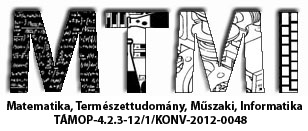Cytokine-induced human mesenchymal stem cells are superior modulators of immunological function
Előadás adatai
Mesenchymal stem cells (MSC) serve not only the purpose of tissue repair and cell renewal, but have been observed as potential modulators of cellular immunological functions upon contact with a variety of immune cells, including dendritic cells (DC). DCs are professional antigen presenting cells connecting the innate and adaptive immune systems and cornerstones in regulating the balance between inflammation and tolerance, making them valuable subjects of immune modulation. Studies have shown that cytokine induction of MSCs may yield phenotypes with particular immune modulatory abilities. In the present study a previously characterised MSC line (MSCl) was investigated for direct and indirect immune modulatory potential exerted on monocyte derived DC (moDC), upon induction by the pro-inflammatory cytokines IFNγ or IL-17.
To analyze the immune modulatory effects of the MSCl cells, moDCs were stimulated with bacterial lipopolysaccaride (LPS) to induce inflammation and co-cultured with MSCl cells. The moDC phenotype was monitored by flow cytometry, using the DC-SIGN marker to gate the DC population, while the cytokine production was measured with ELISA.
The MSCl cells did not affect the viability of moDCs, but altered important characteristics of these cells; the cell surface expression of CD1a was decreased in all cases, as was the secretion of IL-10. The expression of the moDC stimulatory markers (CD80, CD86) and the inhibitory molecule (PD-L1) was increased, above all upon pre-treatment with IL-17, which also decreased the production of the cytokines TNF-α and IFNγ. Interestingly, LPS stimulation of moDC resulted in decreased production of inflammatory cytokines along with all surface markers investigated.
Understanding the effects of MSCs exerted on the actual tissue microenvironment may help to develop novel therapeutic strategies for clinical utility of MSC. This study has given a new insight to how MSCs could modulate differentiating moDC activities; not only via direct MSC-moDC contact, but also through rendering an immune modulatory phenotype by the pretreatment of the cells with selected cytokines, with the potential to affect an ongoing immune response.
Támogatók: Támogatók: Az NTP-TDK-14-0007 számú, A Debreceni Egyetem ÁOK TDK tevékenység népszerűsítése helyi konferencia keretében, az NTP-TDK-14-0006 számú, A Debreceni Egyetem Népegészségügyi Karán folyó Tudományos Diákköri kutatások támogatása, NTP-HHTDK-15-0011-es A Debreceni Egyetem ÁOK TDK tevékenység népszerűsítése 2016. évi helyi konferencia keretében, valamint a NTP-HHTDK-15-0057-es számú, A Debreceni Egyetem Népegészségügyi Karán folyó Tudományos Diákköri kutatások támogatása című pályázatokhoz kapcsolódóan az Emberi Erőforrás Támogatáskezelő, az Emberi Erőforrások Minisztériuma, az Oktatáskutató és Fejlesztő Intézet és a Nemzeti Tehetség Program



